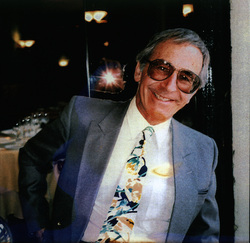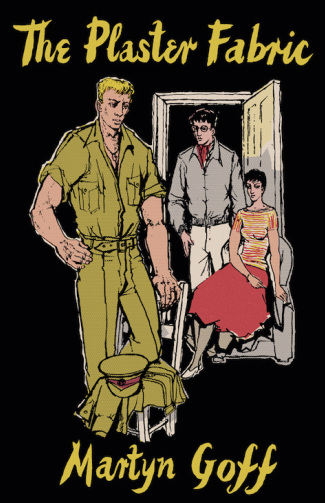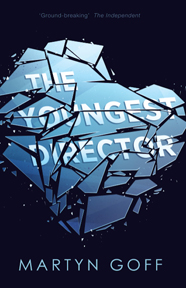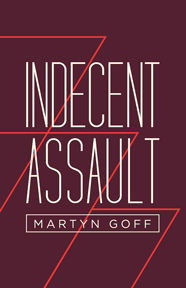|
BOOK DETAILS
Trade paper ISBN-13: 978-1941147092 List Price: $17.99 U.S. Pages: 200 Published: 2014 |
The Plaster Fabric (1957)
Martyn Goff With a new introduction by Martin Dines Book Description
When Martyn Goff’s daring first novel, The Plaster Fabric, appeared in 1957, homosexuality was illegal in Great Britain and both Goff and his publisher risked prosecution for the book’s frank treatment of gay themes. Laurence “Laurie” Kingston, a former Royal Air Force pilot now working as a bookseller and artist, is a man with a secret. Born gay, Laurie has spun a web of lies to conceal his homosexuality, which, if discovered, could cost him his job, his friends, and even his freedom. After a chance encounter one foggy night with Tom Beeson, a rugged soldier, Laurie finds himself falling in love. But Laurie’s already dangerous situation faces another difficulty when his best friend, Susan, also falls for Tom. When Laurie gets caught up in this complicated triangle, he runs the risk of losing everything as the fabric of his carefully constructed life begins to chip away like flakes of plaster . . . Worthy of a place alongside early gay classics like Rodney Garland’s The Heart in Exile (1953) and Mary Renault’s The Charioteer (1953), The Plaster Fabric is reprinted for the first time in this new edition, which includes a new introduction by Martin Dines and the original jacket art by John Minton. |
reviews
“It is doubtful whether since male homosexuality was admitted as a subject for treatment in English fiction it has inspired a more satisfactory novel than Martyn Goff’s The Plaster Fabric.” – Spectator
“Mr. Goff’s earnest handling of his extremely delicate subject, homosexuality, commends him to serious attention . . . The sense of impending doom, of the hostility of society, of insecurity, and the constant terror of betrayal are all well conceived.” – John Betjeman, Daily Telegraph
“[B]rave … plainly the work of an intelligent novelist.” – Times Literary Supplement
“Mr. Goff’s earnest handling of his extremely delicate subject, homosexuality, commends him to serious attention . . . The sense of impending doom, of the hostility of society, of insecurity, and the constant terror of betrayal are all well conceived.” – John Betjeman, Daily Telegraph
“[B]rave … plainly the work of an intelligent novelist.” – Times Literary Supplement
ALSO AVAILABLE THROUGH ONLINE RETAILERS
MORE TITLES BY THIS AUTHOR
AUTHOR BIOGRAPHY

Martyn Goff was born in 1923, the son of a Russian fur dealer who had emigrated to London and established himself with great success. As a youth, Goff read prodigiously, and at 19 he was offered a place at Oxford to read English, but he joined the RAF and served in the Second World War instead. After the war, at age 22, Goff decided to become a bookseller: in 1946, he opened his first shop and before long opened others.
Goff published his first novel, The Plaster Fabric, in 1957, at a time when homosexuality was still illegal in Britain and authors who wrote openly about it could find themselves prosecuted. However, the book earned a rave review from the popular poet and critic John Betjeman, and, as Goff has said, ‘After that, the authorities could hardly condemn it.’ He went on to publish several other novels; three of these--The Youngest Director (1961), Indecent Assault (1967) and Tar and Cement (1988)—dealt with gay themes. He has also published a number of non-fiction works, including books on collecting vinyl records.
Goff is credited by many as one of the most significant figures in modern British fiction for his involvement with the Booker Prize, which he helped to create and oversaw for its first 36 years. Little noticed and even jeered at in its early years, the Booker under Goff’s chairmanship grew into one of the world’s major literary awards, attracting an annual media frenzy and guaranteeing huge sales for winners and shortlisted novels. As Goff approached retirement in 2002, John Sutherland wrote in The Guardian: ‘The current health of English fiction can be explained in two words: Martyn Goff.’
Martyn Goff lived in London with his partner, Rubio Tapani Lindroos; the two met in the late 1960s after the latter, then a student, wrote a fan letter to the author after reading The Youngest Director. He died in 2015.
Goff published his first novel, The Plaster Fabric, in 1957, at a time when homosexuality was still illegal in Britain and authors who wrote openly about it could find themselves prosecuted. However, the book earned a rave review from the popular poet and critic John Betjeman, and, as Goff has said, ‘After that, the authorities could hardly condemn it.’ He went on to publish several other novels; three of these--The Youngest Director (1961), Indecent Assault (1967) and Tar and Cement (1988)—dealt with gay themes. He has also published a number of non-fiction works, including books on collecting vinyl records.
Goff is credited by many as one of the most significant figures in modern British fiction for his involvement with the Booker Prize, which he helped to create and oversaw for its first 36 years. Little noticed and even jeered at in its early years, the Booker under Goff’s chairmanship grew into one of the world’s major literary awards, attracting an annual media frenzy and guaranteeing huge sales for winners and shortlisted novels. As Goff approached retirement in 2002, John Sutherland wrote in The Guardian: ‘The current health of English fiction can be explained in two words: Martyn Goff.’
Martyn Goff lived in London with his partner, Rubio Tapani Lindroos; the two met in the late 1960s after the latter, then a student, wrote a fan letter to the author after reading The Youngest Director. He died in 2015.



